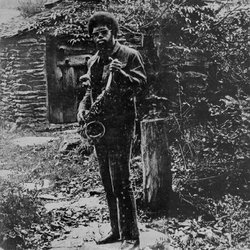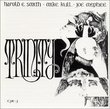| All Artists: Joe McPhee Title: Nation Time (1970) Members Wishing: 2 Total Copies: 0 Label: ATAVISTIC Release Date: 3/31/2009 Album Type: Original recording reissued Genres: Jazz, Pop, R&B Styles: Avant Garde & Free Jazz, Funk Number of Discs: 1 SwapaCD Credits: 1 UPC: 735286220124 |
Search - Joe McPhee :: Nation Time (1970)
 | Joe McPhee Nation Time (1970) Genres: Jazz, Pop, R&B
Part of the first installment in Atavistic's Unheard Music Series--devoted to releasing long-neglected avant-garde gems--Joe McPhee's Nation Time was originally released on CJR Records in 1971. During this 1970 live perfor... more » |
Larger Image |
CD DetailsSynopsis
Amazon.com Part of the first installment in Atavistic's Unheard Music Series--devoted to releasing long-neglected avant-garde gems--Joe McPhee's Nation Time was originally released on CJR Records in 1971. During this 1970 live performance, McPhee mixes Amiri Baraka, James Brown, Sonny Rollins, Sun Ra, and Cecil Taylor into a free-jazz funk so potent and unique that it's shocking to imagine how Nation Time ever fell out of print. The 19-minute title track and "Scorpio's Dance" feature a quintet with two percussionists pushing the group with rocklike intensity (no light touch or delicate brushwork here). Opening things up on the other track, "Shakey Jake," McPhee adds organ, alto saxophone, and guitar, essentially turning the group into a double quartet reminiscent of both Ornette Coleman's Free Jazz band and Miles Davis's post-Bitches Brew fusion work. McPhee's tenor saxophone and trumpet playing is inspired throughout, but he steps aside often to let the rest of the band shine on their own. Really a document of McPhee at his most idealistic and innocent, Nation Time is also the saxophonist at his superfly best. --Tad Hendrickson Similar CDs
|
CD ReviewsThe beginning of the Joe McPhee journey anthony lankester | Exeter, UK | 06/09/2000 (5 out of 5 stars) "I bought this on Lp in 1972, when I had first come across the man, from rave reviews in Cadence magazine.This is a great introduction to Mr McPhee, and really very accessible. Throughout the past 30 years he has produced such profound music which has had such little media attention. If you enjoy sanders, coltrane, shepp and ayler, you will love this man's playing.BUY this and then start chasing after thiose rare Hat Hut cds, especially "As serious as your life"." With new ears Vern Brunton | Norristown, PA | 05/29/2001 (5 out of 5 stars) "When I was younger, I first heard this album. Now that I am older, I have new found respect for what has been created. Even today it still has a wonderful freshness that I truely enjoy. I have had the pleaseure of seeing Joe perform serveral times. Each time is a wonderful treat. As has been mentioned, Joe is under rated and often overlooked. Search out the HAt Hut recordings, there are some very nice surprises in there." "what time is it?" J. Holmes | yokohama, japan | 11/19/2005 (5 out of 5 stars) "wow. it never ceases to amaze me the kinds of treasures that Atavistic's Unheard Music series digs up. i've never been let down by their releases and this stellar offering by Joe McPhee does not dissapoint! the fiery live title track begins with a shouted call and response from the band and audience and then erupts into a white hot explosion of wild sax, acid guitar licks, frantic rock and roll drumming, and solid bass work. the energy level is like a pot of hot water constantly boiling and threatening to spill over at any time, but thankfully, the band keep things at close rein. they manage to play free and wild, but the keen sense of melody is never lost amidst the carnage. great cd!"
|

 Track Listings (3) - Disc #1
Track Listings (3) - Disc #1